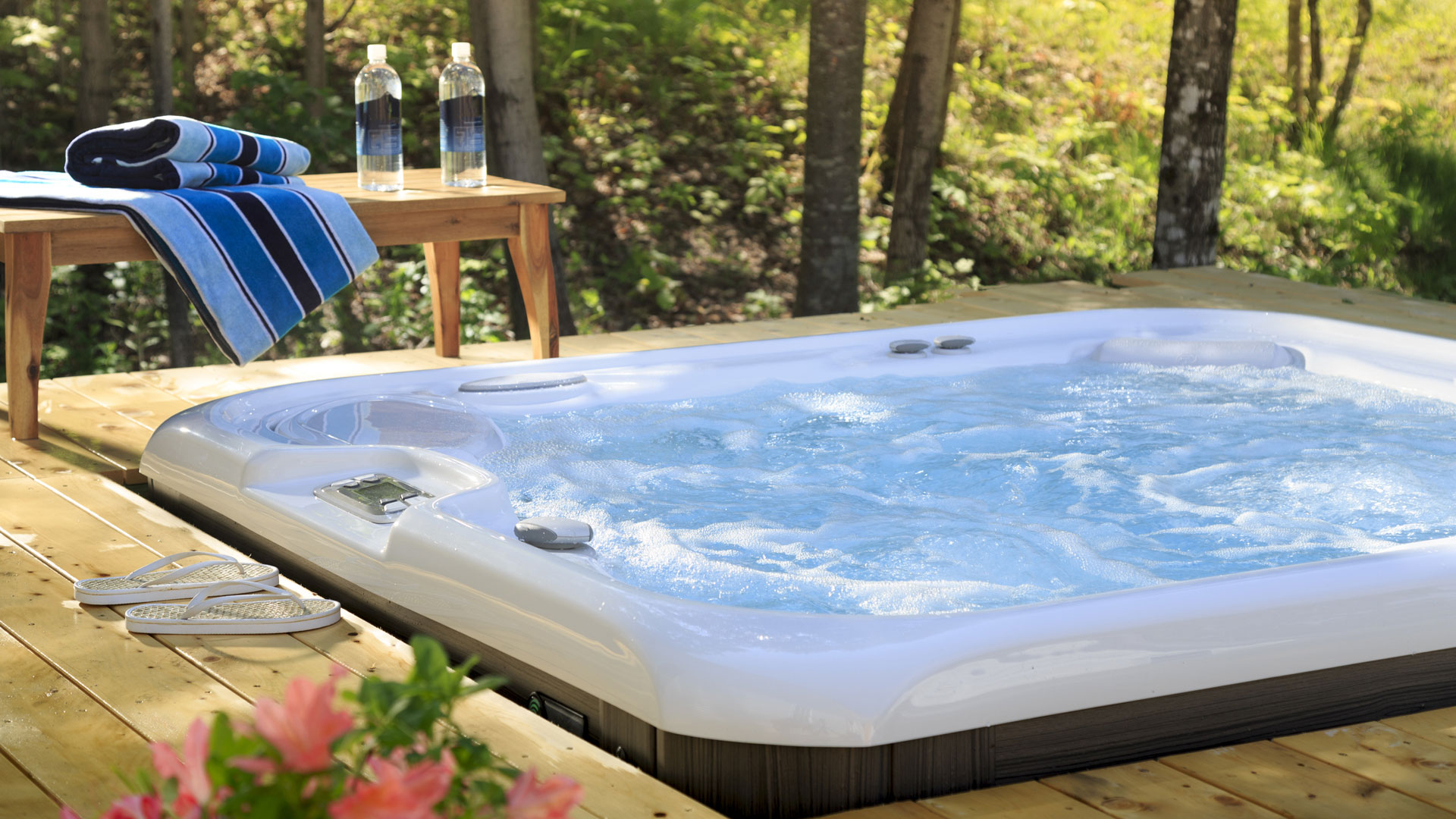If you’re lucky enough to have your own hot tub, you’ll no doubt be an expert when it comes to numerous aspects of hot tub life, from energy efficiency to sanitation systems. But one area you may not be familiar with is the question: what is a hot tub disconnect? Here’s why you need to know.
The brief answer is that a hot tub disconnect is a small breaker box that adds an additional layer of safety to your 220-V hot tub. It’s a secure electrical panel that allows your hot tub to be easily disconnected from the power supply. This means that you’re protected from electric shocks.
A hot tub disconnect also has the advantage of drawing more electrical energy for quicker water heating and allowing the user to run the hot tub jets on high as you heat the water, something you can’t do with a plug-and-play model.
If you don’t yet own a hot tub or you’re thinking about upgrading, don’t forget to check out our guides to the best hot tubs and the best swim spas. Don’t forget that you should always hire a licensed and experienced technician to install your hot tub to ensure everything is properly and safely connected and wired up.
Martin Smith, owner of Showers to You, advises that "Each unit must have a ground fault circuit interrupter for safety reasons (otherwise known as a GFCI) that will cut the power if a ground fault occurs, which could occur by an overloaded circuit, damaged wiring or exposure to dust or moisture. It must also be readily available to the hot tub users and must be placed at least ten feet away from water, so users can shut off the power quickly if any emergencies happen."
Martin Smith, owner of Showers to You, recommends doing your research when it comes to hot tub installations. "Before you purchase one, it’s better to familiarize yourself with the jargon. For example, do you choose a 110-volt or a 220-volt hot tub? What plugs do you need, and how do you disconnect them if you need to?
“The unit is a secure electrical hub and enables you to easily disconnect the tub from the power when you’re finished using it. It also provides safety from electric shocks when in or around the tub.
“You’ll most likely have a 50-amp disconnect on your hot tub, but 60-amp disconnects are also available for larger tubs that require more capacity or for tubs used in colder climates where more heat is needed. Check with your owner’s manual to see which one is needed.”
What is a hot tub disconnect?
A hot tub disconnect is an essential safety device that all owners of 220-volt hot tubs should prioritize. It is a small electrical box that sits near your hot tub, and it enables you to quickly cut the power to the hot tub if you need to in the event of danger or a faulty electrical connection.
A hot tub disconnect will also have a ground fault circuit interrupter (GFCI), which automatically cuts the power connection in the event of a ground fault.

The other perk of a hot tub disconnect is that using one heats up the hot tub water a lot faster and allows you to run the hot tub jets on high as you heat the water, which is something you can’t do with a plug-and-play model.
There are specific instructions to follow when installing a hot tub disconnect. For example, while it should be placed within view of the hot tub, it should be installed at least five feet away from the actual water but no further than 50 feet away, which will protect the hot tub users from electric shock.
Why is a hot tub disconnect important?
If you own a 220-volt hot tub, a hot tub disconnect is essential to protect not just the electrical system from faults but also the user from error, electric shock, or danger. Essentially, a hot tub disconnect provides safety from electric shock when the user is in or around the hot tub.
It goes without saying that electricity and water can make a dangerous combination, so a hot tub disconnect adds an extra layer of protection by automatically turning off and preventing electric shock in the event of a fault, an emergency, or a failure.
Hot tub disconnects must be installed by a licensed specialist as if they are not correctly wired up, this can lead to equipment failure, injury, or even death.

